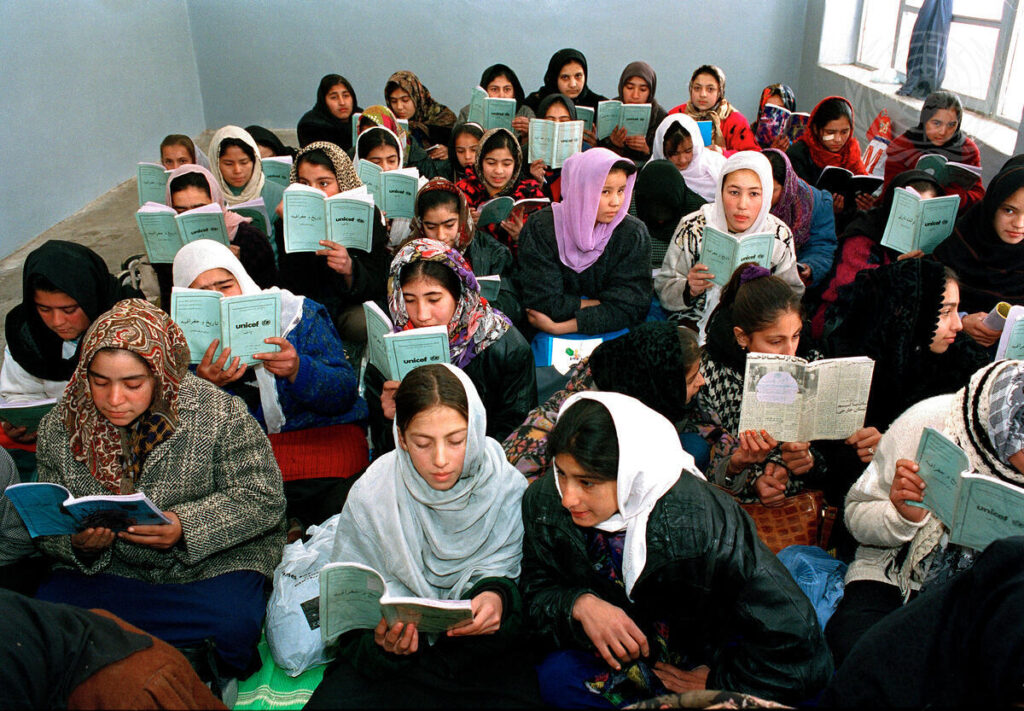New York, January 24 – This year’s International Day of Education has raised a deep concern that more than 5 million children have been shutout of schools in the ongoing war in Ukraine while Taliban authorities in Afghanistan have forbidden girls and women to receive education, U.N. agencies said.
U.N. Secretary-General Antonio Guterres said in a statement that education is a “fundamental human right and the bedrock of societies, economies, and every person’s potential.”
“Now is also the time to end all discriminatory laws and practices that hinder access to education. I call on the de facto authorities in Afghanistan in particular to reverse the outrageous and self-defeating ban on access to secondary and higher education for girls,” he said.
Guterres reminded the 130 countries that last September committed themselves to transform education and ensure that universal quality education will become a “central pillar of public policies and investments.”
“Now is the time for all countries to translate their Summit commitments into concrete actions that create supportive and inclusive learning environments for all students,” he said.
The U.N. Children’s Fund (UNICEF) said the war triggered by Russia’s invasion of Ukraine on February 24, 2022 has compounded the loss of education caused by Covid-19 pandemic in the last three years. Many of the Ukrainian boys and girls have missed schools in eastern Ukraine since the Crimea crisis in 2014.
“Schools and early childhood education settings provide a crucial sense of structure and safety to children, and missing out on learning could have lifelong consequences,” said Afshan Khan, UNICEF Regional Director for Europe and Central Asia. “There is no pause button. It is not an option to simply postpone children’s education and come back to it once other priorities have been addressed, without risking the future of an entire generation.”
Khan said thousands of schools, pre-schools or other education facilities in Ukraine have been damaged or destroyed by explosives and parents were reluctant to send children to schools out of safety concerns.
“UNICEF will continue working with the Government of Ukraine and the host countries’ Governments to deliver solutions to help children in conflict areas and those who have been displaced from their homes to continue their education,” said Khan.
Read UNICEF’s appeal on the International Day of Education
UNESCO: 2.5 million Afghan girls and women barred from schools
The U.N. Educational, Scientific and Cultural Organization (UNESCO) said the Taliban government ordered last December that 80 per cent of school-aged Afghan girls and women, a total of 2.5 million, cannot attend schools. The order included more than 100,000 women who were attending government and private institutions.
UNESCO, the Paris-based U.N. agency, said it has dedicated this year’s edition of the International Day of Education to the women and girls of Afghanistan, “who have been deprived of their fundamental right to education in the wake of the Taliban takeover in August 2021.
Barring girls and young women from classrooms in Afghanistan could wipe out huge gains made in education and create “a lost generation”, the UN’s educational and cultural organization, UNESCO, has warned. (Sources: UN News)
“No country in the world should bar women and girls from receiving an education. Education is a universal human right that must be respected,” said Director-General Audrey Azoulay. “The international community has the responsibility to ensure that the rights of Afghan girls and women are restored without delay. The war against women must stop.”
Taliban authorities last month banned young women from universities following an earlier directive prohibiting girls from attending secondary school, issued mere months after the fundamentalist group, who ruled in the late 1990s up to 2001, regained power in August 2021, sweeping back into the capital of Kabul.
UNESCO said Afghanistan recorded a tenfold increase in enrollment across all education levels, from roughly one million to 10 million students between 2001 and 2018. The number of girls in primary school increased from almost zero to 2.5 million. By August 2021, they accounted for four out of 10 primary school students. Women’s presence in higher education also increased almost 20 fold, from 5,000 students in 2001 to over 100,000 two decades later. Today, 80 per cent of school-aged Afghan girls and women, 2.5 million, are out of school. The order suspending university education for women, announced in December, affects more than 100,000 attending government and private institutions.
United Nations correspondent journalists – United Nations correspondent journalists – United Nations correspondent journalists – United Nations journalism articles – United Nations journalism articles – United Nations journalism articles – United Nations News – United Nations News – United Nations News

